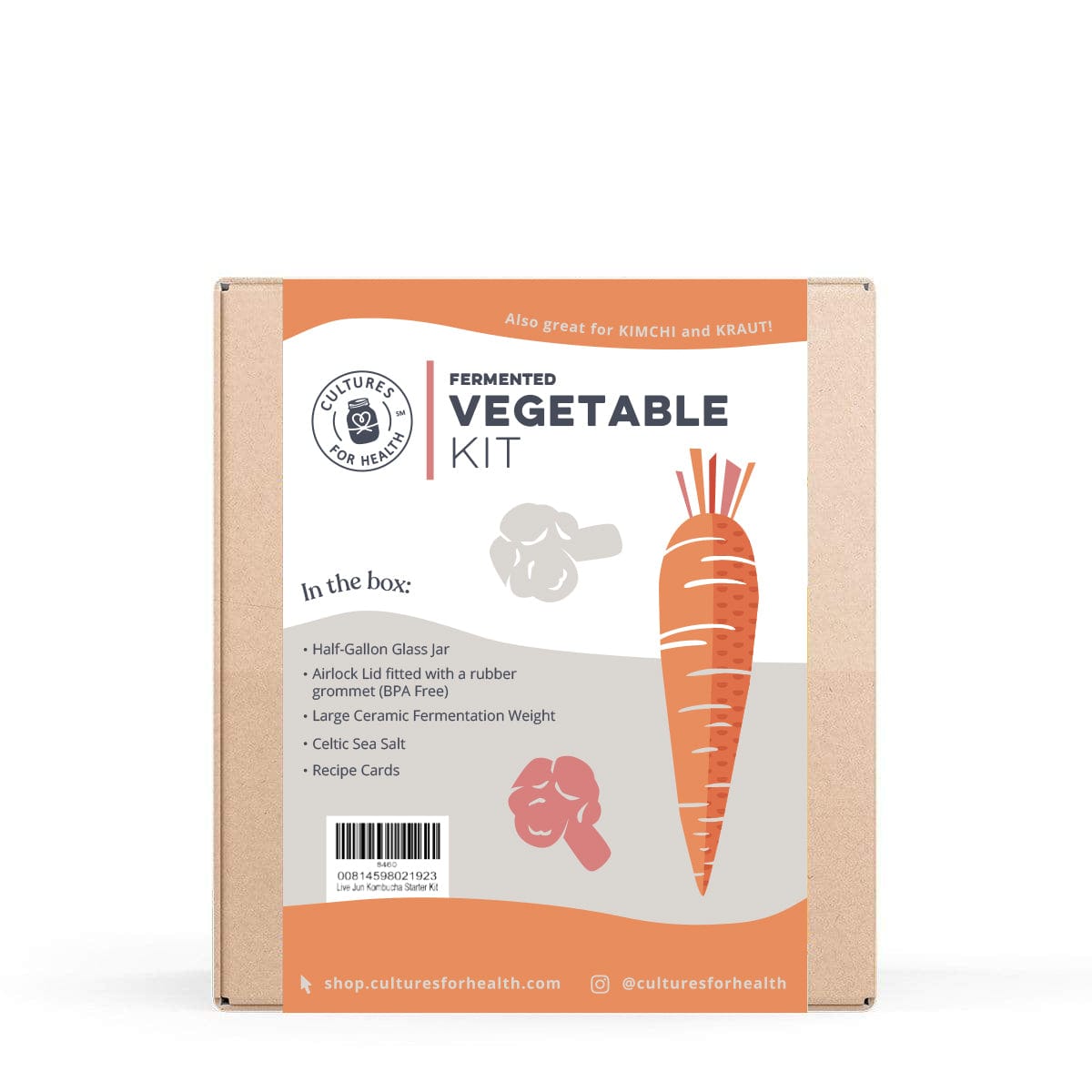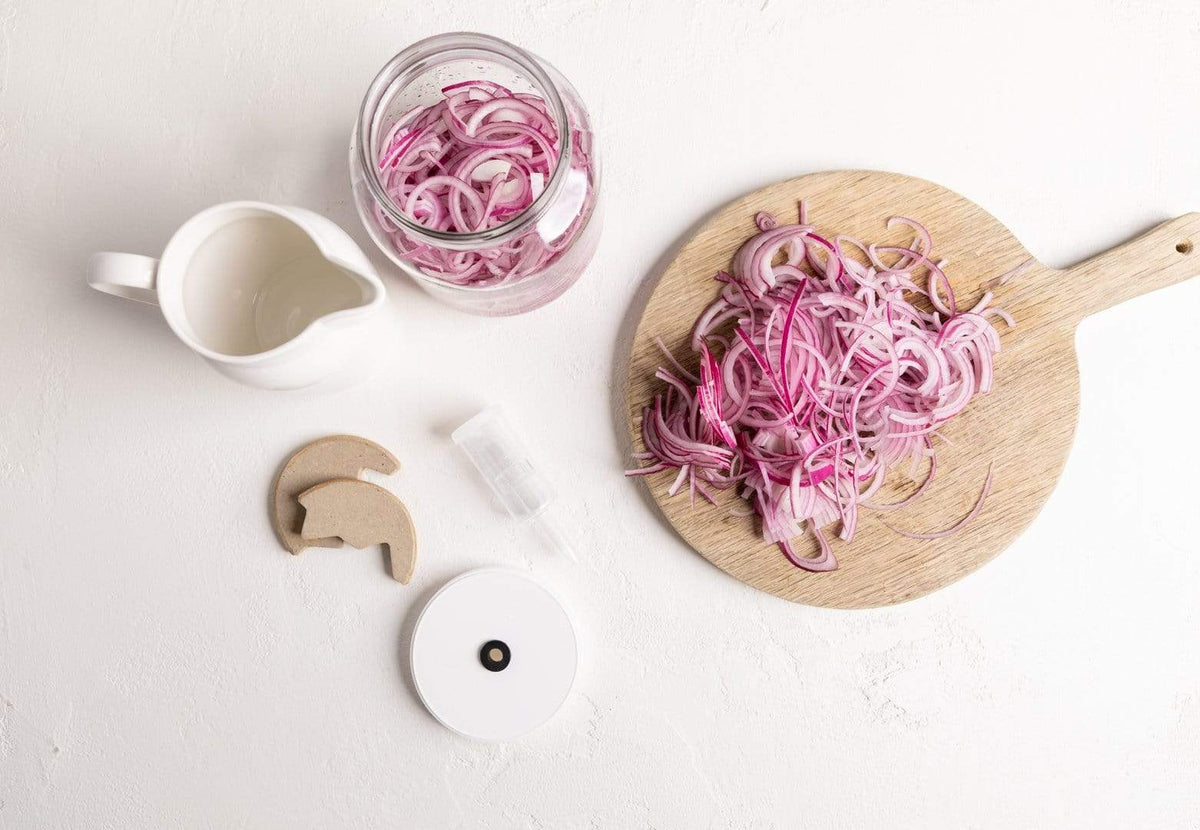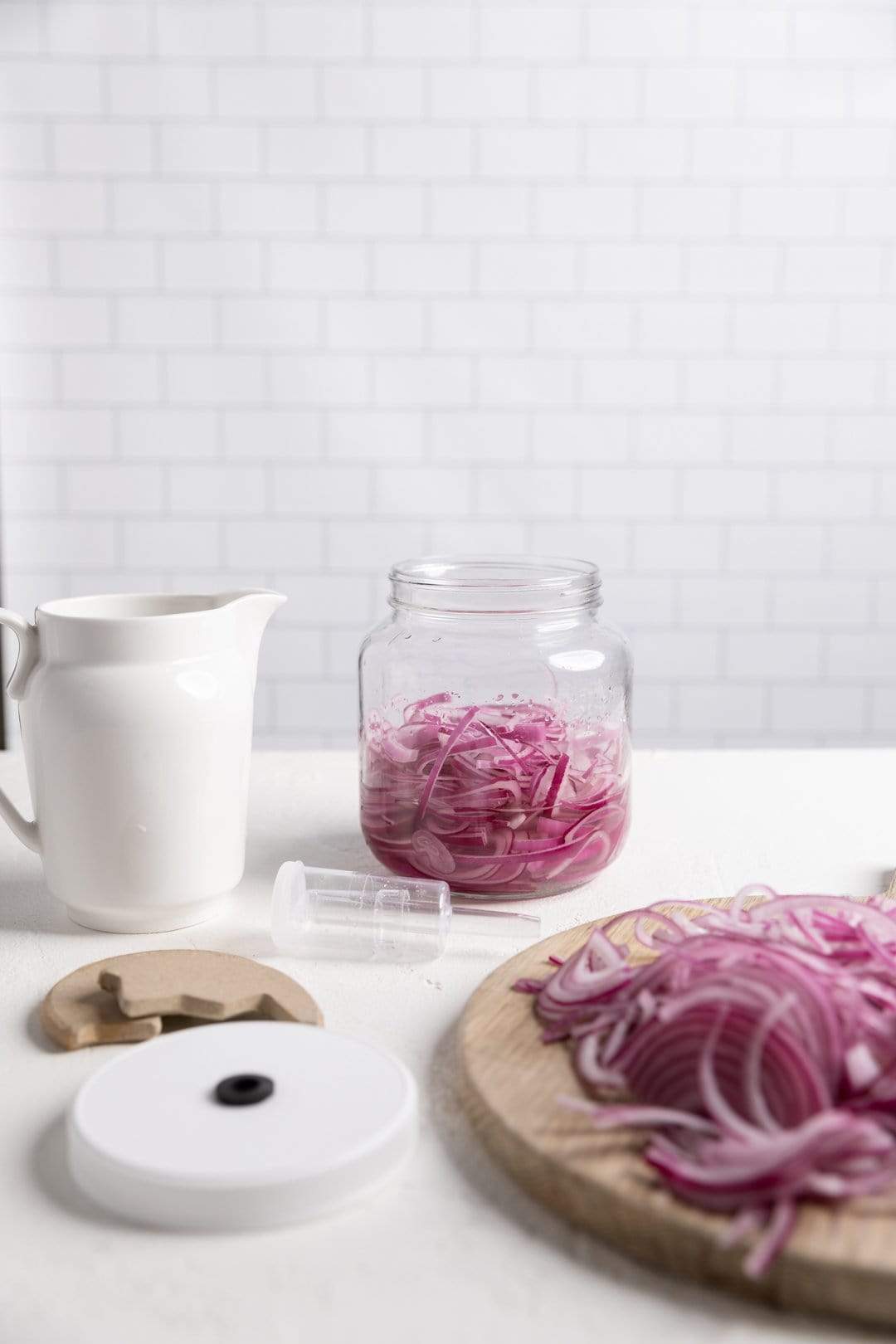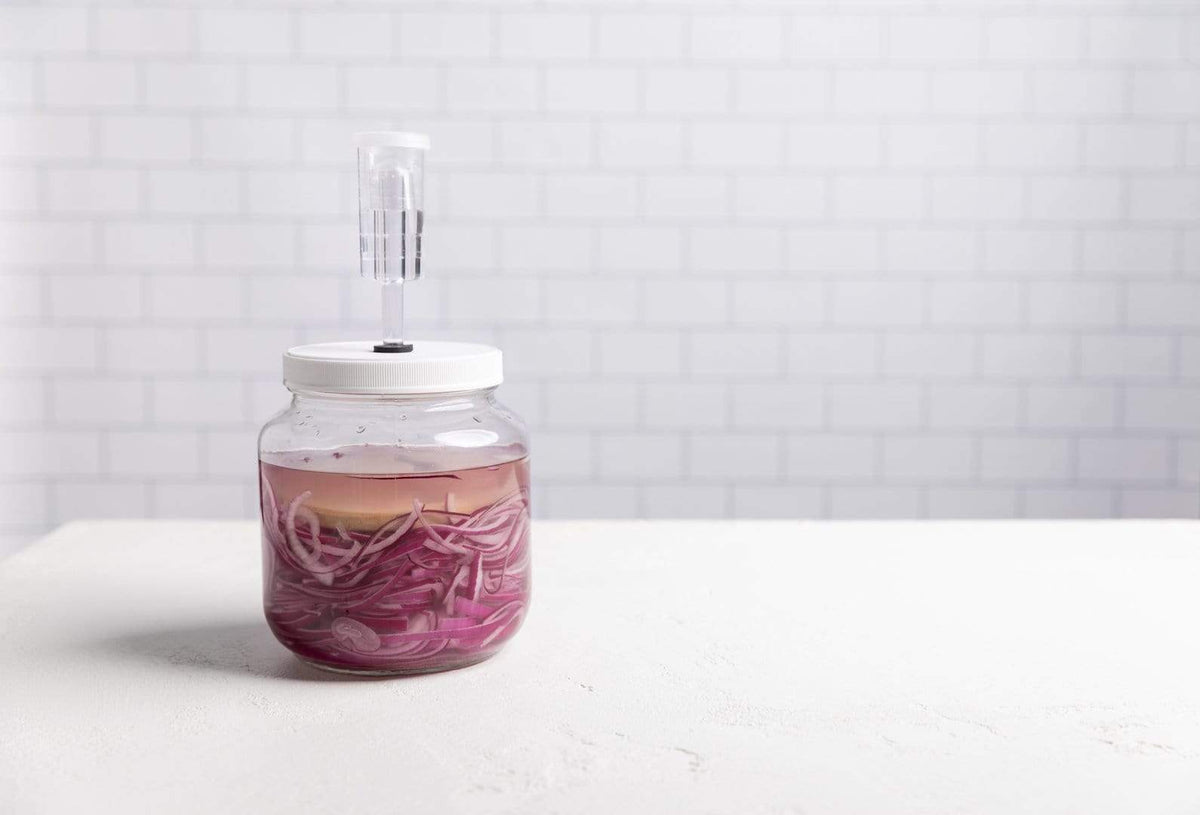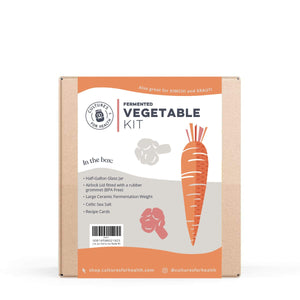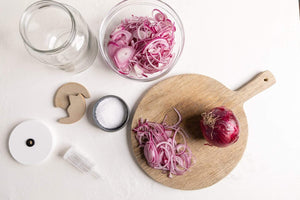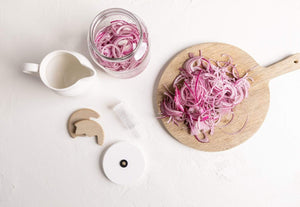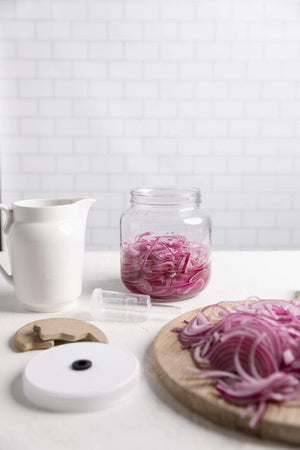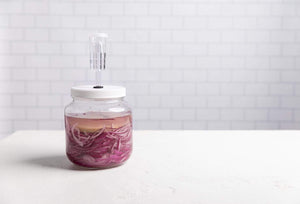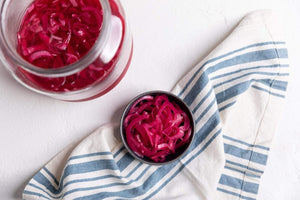
In many countries, fermented vegetable juices are commonly sold in grocery stores and enjoyed regularly by many, usually as a health tonic, but sometimes just because they are tasty.
Fermented vegetable juice is made by placing a small amount of vegetables in a larger amount of liquid, fermenting, then straining out the solids. Beet kvass is a popular fermented vegetable juice. However, fermented vegetable juices can be made with virtually any vegetable.
The only difference between fermenting vegetables and making fermented vegetable juice is that a larger amount of liquid is used, with a smaller amount of vegetables. Add herbs and spices to suit your taste, and you will create a delicious probiotic juice to enjoy daily.
Tip: Fermented vegetable juice will take on the flavor of the ingredients, so be wary of strong flavors such as brassicas or alliums.
Start making delicious and healthy fermented vegetable juice with Cultures for Health. Click to download our Fermentation Guide and Recipe book which provides everything you need to get started, including tips on equipment, ingredients, and recipes.
Fermented Vegetable Kit
INSTRUCTIONS FOR BASIC FERMENTED VEGETABLE JUICE
- Chop vegetables and place in a quart or half-gallon jar. Use enough to fill the jar about ½ full. Some good candidates include:
- beets
- celery
- cucumbers
- garlic
- ginger
- Make a brine of 2 to 3 teaspoons sea salt to every quart of water and pour it over the vegetables. Cover with a tight-weave cloth or coffee filter and secure with a rubber band.
- Culture 3 to 4 days. The juice should achieve a sour but pleasant aroma. A small amount of gray foam may rise to the top. Skim off daily.
- Once the juice reaches the flavor you prefer, strain the juice and set aside the vegetables for a second, weaker batch. Follow the same steps, but ferment a few days longer, 6 to 7 days, or to taste.
- Place the finished juice in a jar with a tight lid and refrigerate for about a week.
Consuming the juice off of regular fermented vegetable batches is another good way to enjoy fermented juices. These juices will be a bit stronger in flavor, but still delicious. Make sure to leave enough juice to cover any remaining vegetables, and enjoy the juice little by little, as vegetables are consumed.
FERMENTED VEGETABLE JUICE RECIPES
Get your free copy of our Fermentation Guide and Recipe Book today!














